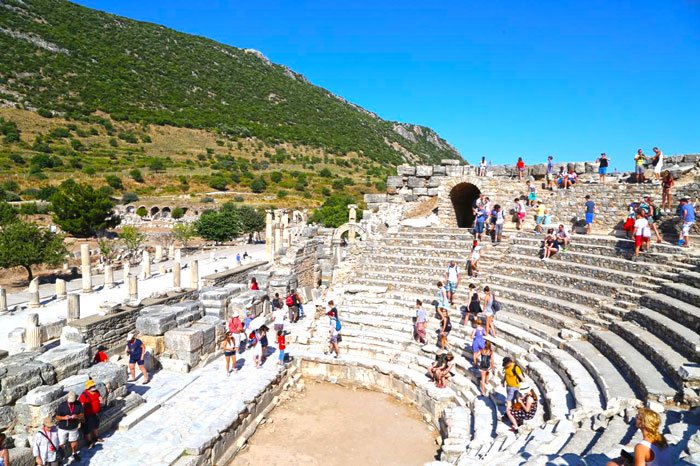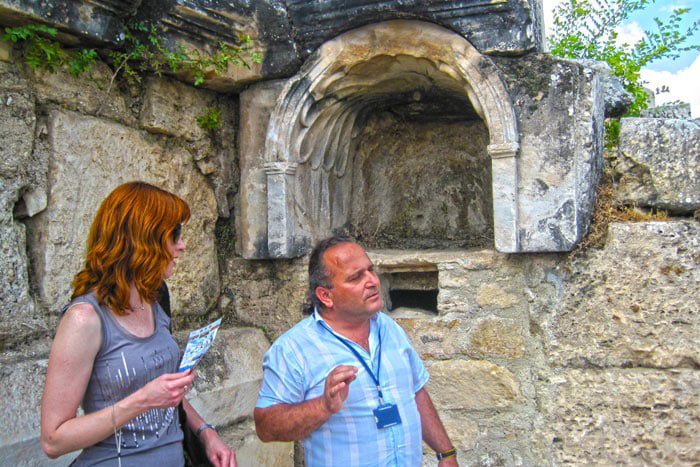Guided tour Ephesus – According legend, Ephesus was founded by the tribe of the Amazons, great female warriors. The name of the city is thought to have been derived from “Apasas”, the name of a city in the “Kingdom of Arzawa” meaning the “city of the Mother Goddess” and some scholars maintain that the sign of the labrys, the double-axe of the mother goddess which adorned the palace at Knossos, Crete, originated in Ephesus. Ephesus was inhabited from the end of the Bronze Age onwards, but the location was changed owing to floods and the whims of various rulers. While Carians and Lelegians were among the city’s first inhabitants, Ionian migrations began around 1200 BCE and Ephesus is chiefly known as a Ionian Greek city.
Guided tour Ephesus Greek Ephesus
The city was founded for the second time by the Ionian Androclus, son of Codrus, and the cities that were established after the Ionian migrations joined in a confederacy under the leadership of the city of Ephesus. The region was devastated during the Cimmerian invasion at the beginning of the 7th century BCE but, under the rule of the Lydian kings, Ephesus became one of the wealthiest cities in the Mediterranean world. Ephesus was a center of learning and the birthplace and home of the great Pre-Socratic philosopher Heraclitus.
Women enjoyed rights and privileges equal to men and there are records of female artists, sculptors, painters and teachers. At night the streets of the city were brightly lit with oil lamps, a luxury not many cities could afford. Under the rule of King Croesus of Lydia, construction of the great Temple of Artemis at Ephesus was begun; one of the Seven Wonders of the Ancient World (destroyed, the first time; by fire in 356 BCE, the same night Alexander the Great was born). The defeat of Croesus by Cyrus, the King of Persia, brought the whole of Anatolia under Persian rule but Ephesus continued to prosper as an important port of trade. When the Ionian city-states rebelled against Persian rule in the 5th century BC; Ephesus remained neutral and thus escaped the destruction suffered by so many other cities at the hands of the Persians.




